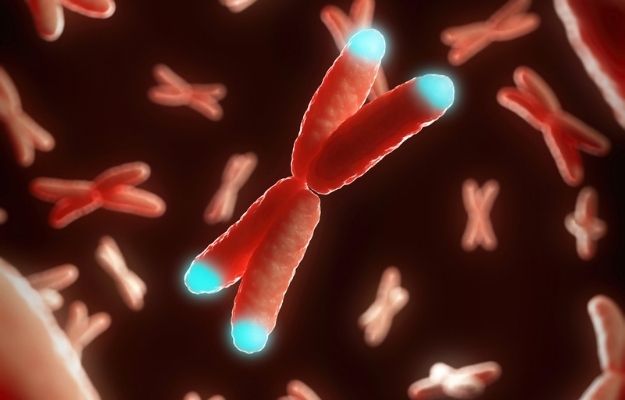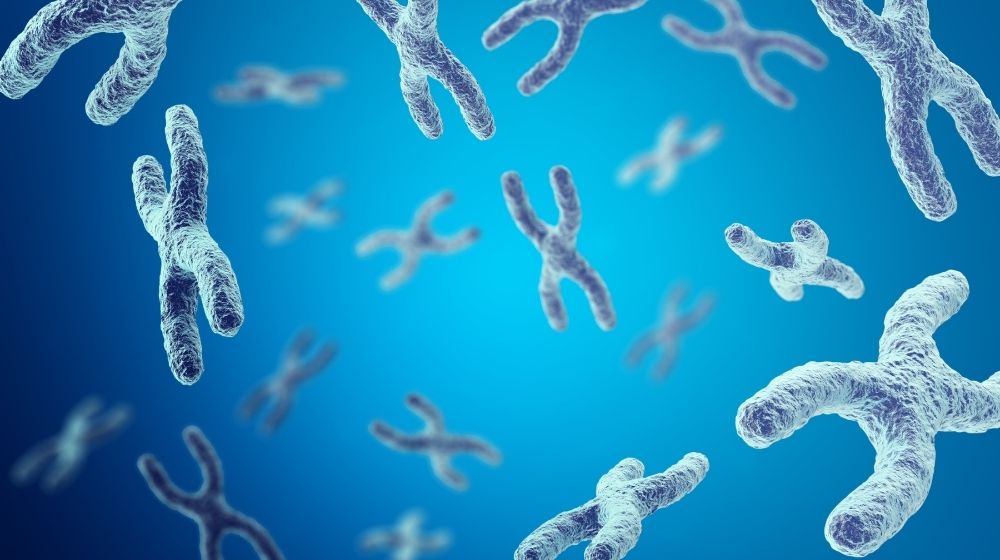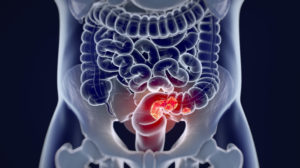Research shows that there’s a link between the length of telomeres and longevity. Read on to learn more about it.
RELATED: New Study Shows A Body’s Biological Age Can Be Reversed
In this article:
- What Is a Telomere?
- Why Are Telomeres Important?
- How Are They Linked to Longevity and Aging?
- What Contributes to Telomere Shortening?
- Are There Other Telomere Interventions?
- What’s Next?
Everything You Need to Know About Telomere and Longevity
What Is a Telomere?

Telomeres are structural components of DNA. You can find telomeres at the end of each DNA strand.
Think of telomeres as protective protein caps for DNA that help maintain genomic stability. Without telomeres, DNA strands get damaged and may impair cellular function.
Why Are Telomeres Important?
Every cell of your body contains DNA. DNA contains all of the instructions our body needs for optimal functioning.
As a protective protein cap, telomeres help keep the information in DNA safe. So these structures help maintain optimal functioning at a cellular level. Unfortunately, with each cell division, telomeres become shorter.
RELATED: The Power of Epigenetics: Slow Aging And Feel Younger With a Simple Test
How Are They Linked to Longevity and Aging?
At a certain point, telomeres will hit the Hayflick limit.
What is the Hayflick limit? This refers to the maximum number of times a cell will divide. After hitting this limit, cells stop dividing because telomeres hit a critically short length.
Once this happens, the cell begins to age and die. Scientists link the rate of telomere shortening to the pace of aging and, ultimately, the lifespan of species.
That’s why many scientists use telomere length as a biomarker for longevity and overall healthspan. Apart from aging in general, studies show that telomere length is linked to various chronic illnesses such as:
- Certain cancers
- Neurological diseases
- Cardiovascular diseases
- Osteoporosis
- Type 2 diabetes
Given its association with age and illness, scientists believe that Telomere length is a good representation of biological age. As opposed to your chronological age, biological age refers to how well your body is functioning.
There’s nothing you can do about chronological aging. But there may be things you can do to slow down or even reverse biological aging—you just need to know what factors contribute to aging.
What Contributes to Telomere Shortening?

As you age, telomeres naturally shorten. But there may be things that speed it up.
There are environmental and lifestyle factors that can accelerate telomere shortening. These factors include:
- Lack of physical activity
- Obesity
- Smoking
- Chronic psychological stress
- Traumatic experiences
- Poor diet
- Oxidative stress
So, if you can, steer clear from these factors to protect your telomeres.
Are There Other Telomere Interventions?
In 2009, Elizabeth Blackburn, Carol Greider, and Jack Szostak discovered how a specific enzyme could help synthesize telomeres. This groundbreaking discovery won them the Nobel Prize for Medicine.
This enzyme is called telomerase. In 2016, a group of researchers ran the first randomized, double-blind, placebo controlled study to test a telomerase activator on humans.
The study shows that their supplement lengthened telomeres in a statistically and clinically significant way. More studies are being done to see how telomerase therapies can target aging and cancer.
What’s Next?
Scientists have come a long way since telomeres were initially discovered in the 1930s. It was only a few decades back when researchers found a link between telomere length and cellular aging. Since then, more than 20,000 journal articles have been written about telomeres.
But there’s still a lot of work ahead of them. They need to run more studies and clinical trials to learn more about the aging process, telomeres, and telomerase therapies.
As we wait to learn more about telomere therapies, there are other epigenetic applications you can take advantage of. If you’re serious about healthspan extension, then it’s important to know your true age or your biological age.
Knowing your biological age will give you an accurate view of your health status. A biological age test measures another biomarker of aging called DNA methylation.
Using a small blood sample, the test measures the pattern of DNA methylation changes to predict the quality of your health and the risk of various diseases. If you’re interested in learning more about the benefits of a biological age test, visit the TruDiagnostic website.
What concerns you most about aging? Please share your thoughts with us in the comments section below.
Up Next:





